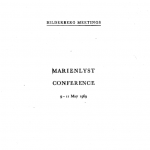
A copy of the conference report for the 1969 Bilderberg Conference held at the Hotel Marienlyst in Mont Helsingør, Denmark.
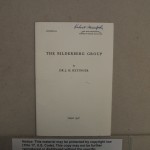
An eighteen-page introduction to the Bilderberg Group, its history and organizing principles written by Dr. Józef Hieronim Retinger, a polish political adviser and one of the founders of the European Movement for integration. Retinger is considered to be one of the most influential people in the creation of the Bilderberg Group and this document was provided to new attendees.
The 64th Bilderberg meeting is set to take place from 9 – 12 June 2016 in Dresden, Germany. A total of around 130 participants from 20 countries have confirmed their attendance. As ever, a diverse group of political leaders and experts from industry, finance, academia and the media have been invited.
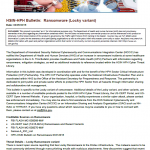
The Department of Homeland Security National Cybersecurity and Communications Integration Center (NCCIC) has notified the Department of Health and Human Services (HHS) of an increase in ransomware incidents at some healthcare organizations in the U.S. This Bulletin provides Healthcare and Public Health (HPH) Partners with information regarding ransomware, mitigation strategies, as well as additional materials to reference located within the HSIN HPH Cyber Threat Library.
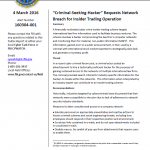
A financially motivated cyber crime insider trading scheme targets international law firm information used to facilitate business ventures. The scheme involves a hacker compromising the law firm’s computer networks and monitoring them for material, non-public information (MNPI). This information, gained prior to a public announcement, is then used by a criminal with international stock market expertise to strategically place bids and generate a monetary profit.
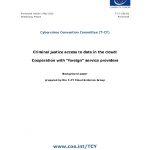
The purpose of the present background paper is to provide a snapshot of policies and practices of some major US service providers regarding their “voluntary” disclosure of information to law enforcement authorities in foreign jurisdictions, and thus to facilitate discussion of future options regarding criminal justice access to electronic evidence in the cloud.
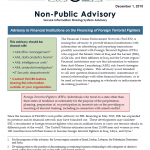
The Financial Crimes Enforcement Network (FinCEN) is issuing this advisory to provide financial institutions with information on identifying and reporting transactions possibly associated with Foreign Terrorist Fighters (FTFs) who support the Islamic State of Iraq and the Levant (ISIL), al-Qa’ida, and their affiliates in Iraq and the Lev ant region. Financial institutions may use this information to enhance their Anti-Money Laundering (AML) risk-based strategies and monitoring systems. This advisory is not intended to call into question financial institutions’ maintenance of normal relationships with other financial institutions, or to be used as basis for engaging in wholesale or indiscriminate de-risking practices.
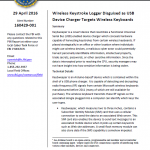
KeySweeper is a covert device that resembles a functional Universal Serial Bus (USB) enabled device charger which conceals hardware capable of harvesting keystrokes from certain wireless keyboards. If placed strategically in an office or other location where individuals might use wireless devices, a malicious cyber actor could potentially harvest personally identifiable information, intellectual property, trade secrets, passwords, or other sensitive information. Since the data is intercepted prior to reaching the CPU, security managers may not have insight into how sensitive information is being stolen.
Technical Details
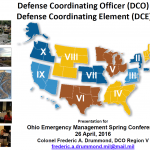
On order and in response to natural/manmade incidents, the Defense Coordinating Officer / Defense Coordinating Element (DCO/DCE) anticipates and conducts Defense Support of Civil Authorities (DSCA) operations coordinating Title 10 forces and resources in support of the Federal Primary Agency (PA) in order to minimize impacts to the American people, infrastructure and environment.
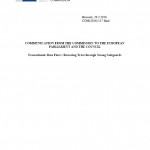
In June 2013, reports concerning large-scale intelligence collection programmes in the U.S. raised serious concerns at both EU and Member State level about the impact on the fundamental rights of Europeans of large-scale processing of personal data by both public authorities and private companies in the United States. In response, on 27 November 2013 the Commission issued a Communication on Rebuilding Trust in EU-U.S. Data Flows setting out an action plan to restore trust in data transfers for the benefit of the digital economy, the protection of European individuals’ rights, and the broader transatlantic relationship.